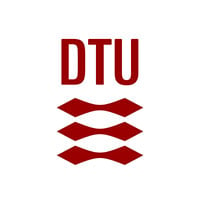Structural Characterization of Self-Assembly of Organic Nanomaterials and Biomaterials
Position Details (PhD Program)
The National Centre for Nanofabrication and Characterization (DTU Nanolab) at the Technical University of Denmark (DTU) is seeking a PhD student to study the (self-)assembly and functionalization of soft matter nanostructures, by means of electron microscopy (EM).
In the research group “Nano-Micro-Macro. Structure in Materials”, we strive at developing and applying concepts for characterizing structures, mainly focusing on state-of-the-art EM. The interdisciplinary efforts aim at developing fundamental understandings of process-structure-property relationships. The focus here is on biotechnology.
Responsibilities and tasks
In nature, countless structures are formed through (self-)organization of preformed building blocks. In contrast, bottom-up assembly of synthetic materials with predefined structures and properties still seems challenging. For example, mesostructured materials with well-defined properties can be designed through multiscale assembly, combining self-assembly of predefined building blocks (e.g. molecules) with a subsequent organization and functionalization.
Ideas and concepts developed in this project will advance our fundamental understanding of how structurally complex systems and hierarchical functional materials form in a bottom-up approach, from proteins and pharmaceuticals to nanocomposites.
This project supports the ongoing efforts at DTU Nanolab to expand research activities in soft matter characterization and nanofabrication. The position is fully funded by a Starting Grant of the Novo Nordisk Foundation (NNF, DK).
Your overall focus will be to strengthen our efforts to ‘visualize’ dynamics in soft matter with single molecule resolution under realistic conditions, by means of (in-situ) electron microscope.
Tasks:
- Develop a basic understanding of self-assembly at the molecular level;
- Develop a basic understanding of bottom-up assembly processes in functional materials;
- Develop concepts to ‘visualize’ (molecular) building blocks by means of EM;
- Develop concepts to observe assembly processes in-situ;
- Develop data-driven concepts and workflows;
- Investigate structural phenomena in self-assembly / bottom-up processes.
Characteristics:
- You are interested in working in interdisciplinary research collaboration;
- You are a team player and have a strong talent for interacting in teams and integrating information;
- You have a fundamental interest in (soft) materials, materials synthesis & assembly, materials characterization;
- You want to learn about soft matter synthesis and functionalization;
- You want to learn and apply advanced materials characterization to ‘see’ single molecules;
- You want to learn how artificial intelligence concepts revolutionize materials science and engineering.
Qualifications
You must have a two-year master’s degree (120 ECTS points) or a similar degree with an academic level equivalent to a two-year master’s degree.
We are specifically looking for someone with a deep knowledge of materials / soft matter synthesis and significant experience in electron microscopy (STEM/TEM). A strong background in scientific programming will be advantageous.
A Master degree in in chemistry, chemical engineering, physics, materials science, or a related field is preferred. Good communication & writing skills as well as a very good command in English is expected.
Approval and Enrolment
The scholarship for the PhD degree is subject to academic approval, and the candidate will be enrolled in one of the general degree programmes at DTU. For information about our enrolment requirements and the general planning of the PhD study programme, please see the DTU’s rules for the PhD education.
Assessment
The assessment of the applicants will be made by Professor Joerg Jinschek.
We offer
DTU is a leading technical university globally recognized for the excellence of its research, education, innovation and scientific advice. We offer a rewarding and challenging job in an international environment. We strive for academic excellence in an environment characterized by collegial respect and academic freedom tempered by responsibility.
Salary and appointment terms
The appointment will be based on the collective agreement with the Danish Confederation of Professional Associations. The allowance will be agreed upon with the relevant union. The period of employment is 3 years. Expected starting date is 1 April 2023 (or as soon as possible thereafter).
The workplace during the PhD project will mainly be at DTU Nanolab, B307, Lyngby Campus.
You can read more about career paths at DTU here.
Further information
Further information may be obtained from Professor Joerg Jinschek, email: [email protected].
You can read more about DTU Nanolab at www.nanolab.dtu.dk/english.
If you are applying from abroad, you may find useful information on working in Denmark and at DTU at DTU – Moving to Denmark. Furthermore, you have the option of joining our monthly free seminar “PhD relocation to Denmark and startup “Zoom” seminar” for all questions regarding the practical matters of moving to Denmark and working as a PhD at DTU.
Application
Please submit your online application no later than 10 January 2023 (Danish time). To apply, please open the link “Apply now“, fill out the online application form. All of the following documents must be attached in English:
- Letter of motivation (statement of purpose) – essential, will be read first
- Curriculum vitae
- Grade transcripts and BSc/MSc diploma (in English) including official description of grading scale



 Technical University of Denmark (DTU)
Technical University of Denmark (DTU) 